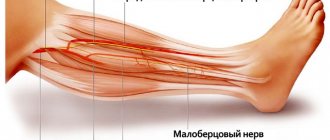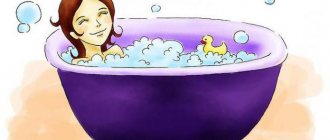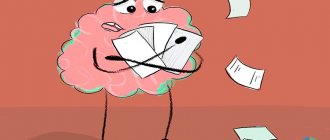Professional stress is a person’s tense state at work, which develops under the influence of various negative factors directly related to the work process.
What reasons provoke the development of professional stress, what danger it poses to psychological and physical health, as well as methods of combating and preventing it – we’ll talk about all this further.
Types of stress
If we translate the expression stress from English, it means: “load”, “pressure”, “oppression”.
Emotional or psychological stress
It knocks a person out of his rut in life, takes away a lot of his energy and strength. It occurs more often against the background of problems related to work, family life, illness of relatives, before an upcoming marriage or the birth of a child, etc.
Physiological stress
Its development is associated with sudden changes in climatic or other conditions: during heat, cold, thirst, hunger, etc.
Short-term stress
Occurs during unexpected events: inflation, natural disaster, change of socio-political system. This type of stress is so strong that it can cause shock.
Long-term stress
Disturbs emotional balance due to periodic memories of a previously experienced shock.
Information stress
It develops among people experiencing information overstrain, which occurs when many important issues need to be resolved, despite a lack of time or with irrational distribution of efforts. This type of stressful situation affects schoolchildren, students, IT specialists, drivers, managers, and human rights activists.
Sometimes there is a need to eliminate information stress when information is suddenly lost due to a malfunction or freezing of a personal computer. In many cases, you have to improve your knowledge and study modern computer programs. In such a situation, when there is a regular overload of information, long-term stress develops.
Eustress
Eustress is usually caused by certain events or situations that are accompanied by a powerful surge of creative energy or great joy. No one wants to eliminate this positive stress, even when tears appear in the eyes. Regardless of the reasons, a positive shake-up of the nervous system helps to increase creativity and active thinking.
It brings you closer to the desired result. For example, eustress helps a climber overcome unfavorable natural disasters in order to conquer the treasured mountain peaks.
Distress
This form of negative stress often lingers. This type of stress must be removed as quickly as possible, as well as the causes that contribute to the negative state must be eliminated, otherwise the human body’s defenses will suffer.
Negative stress is often caused by fear. For example, an excited, anxious situation occurs when there is a threat of losing a job you love or when you have been unfairly passed over on the career ladder.
The effects of stress on the body and psyche: negative and positive
It may sound strange, but there is an opinion that stress in the workplace has a positive effect - supposedly, it increases the productivity of the activity performed.
However, here we should immediately make a reservation - we are talking about the first stage of the condition, at which the body is still full of strength, then stress can really invigorate and stimulate you to work better. But everything, as they say, is good within reason: when professional stress drags on and moves to the second and third stages, you can’t do without negative consequences. Tension has both physiological and psycho-emotional consequences. Let's look at both categories in more detail.
Psychological changes include the following symptoms:
- the labor process begins to become burdensome, job satisfaction disappears;
- a person experiences severe fatigue during working hours;
- Concentration and memory deteriorate due to which mistakes are constantly made in work;
- the positive attitude and sense of humor disappear;
- often suffer from migraines;
- Relationships with colleagues and family members become worse;
- irritability and aggression occur;
- goals no longer seem clear, life guidelines are lost;
- a state of apathy and depressive disorders arise.
As for the physical consequences , they are even more frightening:
- the likelihood of cardiovascular disease increases significantly;
- there is a decrease in immune defense, a person begins to get colds and viral illnesses more often;
- sleep disturbances occur: insomnia, increased drowsiness, nightmares;
- the condition of hair and skin noticeably worsens;
- back pain appears;
- significant weight changes are possible: sudden weight loss or gain of extra pounds;
- the digestive tract suffers: stomach pain, gastritis, nausea, vomiting, peptic ulcer occur;
- The nervous system is also influenced: anxiety increases, mental disorders develop, panic attacks, etc.
This list can be continued with other unpleasant consequences. It’s not for nothing that psychologists come to the conclusion that the causes of all physical ailments lie in our heads. And the connection between negative emotions and diseases is studied by the science of psychosomatics.
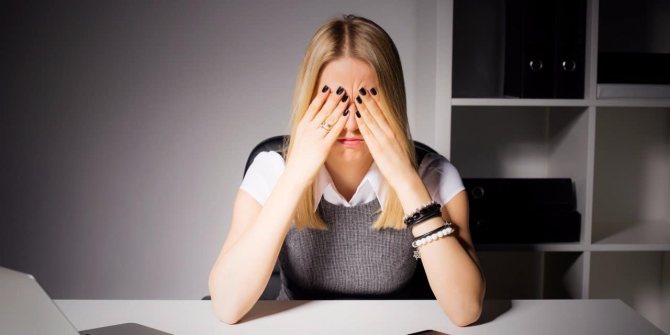
Symptoms of stress
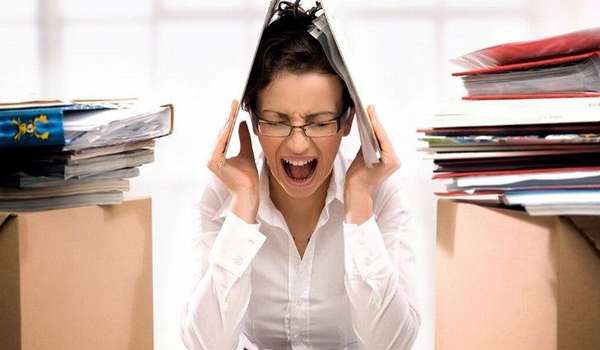
Under the influence of negative situations that unsettle a person from his usual rut, the body mobilizes forces to perform actions that a person cannot perform in his usual calm state.
There is no dependence of stress symptoms on the type of manifestation or form of exposure. The body's response can cause the following negative manifestations:
►anxiety to mobilize and adapt to the changes that have arisen,
►resistance to oppression, using adaptive capabilities,
►exhaustion when adaptive resources have been exhausted.
A stressful state contributes to the active release of the following hormones into the blood:
►adrenaline, which increases blood pressure, increases heart rate, increases appetite, causes the need to consume high-calorie foods,
►cortisol, which contributes to increased stress, which is why it is called the stress hormone. Under the influence of cortisol, the body’s immunity is strengthened, energy reserves are preserved, and blood sugar levels increase. At the same time, cortisol causes a decrease in the activity of the reproductive and digestive systems.
Thanks to hormones, mobilization is ensured, performance is increased, and responses to stressful situations are revived with the most effective real actions using force.
To get rid of stress, you need to spend energy to do extra actions. Some people spend their energy studying and implementing theoretical and practical knowledge in life, possessing professional skills and abilities. Others spend energy on increasing muscle mass and improving physical techniques.
When the process of overcoming obstacles during the development of an adaptation resource is delayed, the following symptoms of stress are noted:
►feeling of loneliness,
►inappropriate behavior a person loses control over himself,
►change in appetite: either it disappears completely, or, on the contrary, gluttony occurs,
►it is impossible to give an objective assessment of emerging problems,
►a feeling of powerlessness in the face of some emerging problems,
►logical arguments of surrounding people are not accepted
►the mood constantly changes,
►lack of desire to sympathize with the problems of loved ones, acquaintances,
►any jokes cause offense,
►The rules of business communication and etiquette are not followed, and there is no polite communication.
When, for some reason, it is not possible to relieve stress through real actions, excess hormones in the blood cause significant harm to human health:
►manifestations of depression become more frequent,
►insomnia occurs
►there is a rapid heartbeat, pain in the heart area,
►migraine develops
►indigestion, irritable bowel symptoms may occur,
►stress can cause another heart attack. Raynaud's disease may develop.
For many patients, there is no need to eliminate negative stress; it may disappear on its own once emotional sensitivity and overexertion decrease. Regular overload of the nervous system contributes to the development of muscle spasms. This leads to the appearance of stoop, radiculitis, dysfunction of the digestive system, and the appearance of a nervous tic.
Information stress in our lives
English, and after them Russian scientists came to this disappointing conclusion that almost the entire population of Russia constantly experiences information stress
According to psychologists, the source of this stress is the media, which does not present information quite correctly.
From television screens and from all the pages of newspapers, we are constantly bombarded with a stream of messages about various disasters, murders, terrorist attacks, and criminal incidents. This makes people constantly think about the dangers that may lurk everywhere, and fear for their lives. Outwardly, this does not manifest itself in any way, but this stress cannot pass without leaving a trace on the body. This weakens the immune system and can even lead to chronic diseases such as stomach ulcers, chronic diseases and even tumors, and can also lead to depression. And the person becomes in need of psychological help.
The Internet also adds its share to this unfavorable situation. When visiting any website, a person immediately comes across news feeds in which messages about terrorist attacks, explosions, and disasters constantly flash. And this is not surprising, because “fear” sells well and increases the rating.
Information stress can also be caused by the race for education. Many children are taught from childhood that a good education is the key to success in life. Many schools are introducing additional subjects and elective classes, which means that children spend more and more time at school and in classes. Also, many parents send their children to numerous courses and additional classes. Which also takes a lot of time from children. Coming from school, the child goes to some courses, returning from courses, he sits down for homework. Children simply do not have time for ordinary children's games and entertainment. This, of course, cannot but have a negative impact on the child’s health.
More and more children are falling into depression that is unreasonable in the eyes of their parents, becoming irritable and nervous. Some parents, without even understanding the situation, accuse their children of being capricious and not wanting to listen to their parents, although they want to give them a brighter future.
As a result, the child has practically no childhood, and upon finishing school, he finds himself in an even more stressful environment: admission to a higher educational institution, sessions, exams. After graduating from school, many high school students no longer even have the desire to choose the direction in which they would be interested in studying; they are simply tired of studying. And they again follow the lead of their parents, often enrolling in the wrong universities where they would like to study. In the end, after some time they come to a consultation with a psychologist in order to understand what they themselves want.
But, upon entering college, teenagers receive greater freedom of action than during school and begin to make up for lost time during their school years. They go to clubs, have fun, forgetting about their studies. They only remember about it when the session has already begun. And again they experience severe information stress , trying to make up for lost time during the semester.
Author: Rybin M., https://www.newhouse.ru
| < Previous | Next > |
Don't eliminate negative stress
Most patients strive to find and use all kinds of ways to relieve negative stress. They need it to relieve discomfort. However, there are other opinions on this matter; these are people who are sympathetic to the situation that has arisen: they do not make any attempts to restore favorable comfort.
It turns out that purposeful and persistent people, thanks to negative stressful situations, receive the necessary shake-up, which helps them concentrate their efforts in solving planned matters. Ultimately, they achieve success in matters of life. Without strong negative stress, it would take a long time to achieve the intended result. Moreover, individuals experiencing periodic distress experience fullness of life across the board.
How to develop stress resistance

There is a procedure when applying for a job where they check the reaction of a new applicant to a stressful situation. There are professions for which this quality is mandatory. Applicants with high resistance to stress have broad prospects; it is easier for them to reach professional heights on the career ladder; difficulties help them in this; they are ready to make the right decision even in an unfavorable environment. Most of his colleagues in such a situation are trying to find a way to relieve stress.
At the same time, everyday resistance to pressure, the need to make quick decisions under uncertain conditions or lack of information, and the willingness to be punished for possible mistakes - all this dulls sensitivity.
An employee who does not need to eliminate stress is indifferent to the problems of others. This can lead to negative phenomena in family life, as well as professional activities. The criteria for the ability to be in an unfavorable environment for a long time, overcoming stress, without causing damage to professional activity, the health of others, and one’s own well-being are:
►excellent health, well-being,
►strong-willed qualities,
►temperament,
►upbringing,
►character.
As a rule, despite excellent individual qualities, there will come a time when the need arises to relieve everyday stress.
Preventive measures
You can eliminate the consequences of work stress, or you can try to prevent its occurrence. To do this, remember the following tips:
- always look for something “to your liking”, and not just for the sake of money, if it does not evoke an internal response in you;
- Don’t make work the only meaning of your life, even if it’s your favorite one. In addition to this, let you have a favorite hobby, and don’t forget to devote time to your loved ones and friends;
- take care of yourself: take care of your physical and mental health;
- develop flexibility in communicating with colleagues and superiors, learn to reduce the degree of internal tension;
- increase your self-esteem, improve your professional abilities, grow as a specialist;
- do not try to find happiness or salvation in work - it is only part of a full life;
- Be open to the world, develop an optimistic mindset - and then you will most likely never know what burnout is at work!
How to prevent and relieve stress

Recipe 1
To develop stress resistance, you need to have the ability to avoid stress and conflict. You should correctly understand the reasons for your actions and take into account the psychological state of all the people around you. Make a rule to react to any negative situation only after an analysis has been carried out.
Recipe 2
Life situations force one to expend significant personal resources to overcome volitional, intellectual, and emotional pressure. This creates significant tension and enormous stress. Therefore, it is necessary to relieve stress, find any way to “let off steam,” since any negativity can destroy the body.
An excellent method for overcoming stress is to regularly switch your area of activity. When a profession is associated with intellectual activity, it is worth switching to physical activity, and vice versa.
Recipe 3
Constantly maintain a reserve of physical strength. Find time for a good night's rest, get enough sleep, follow a work-rest schedule, and provide yourself with adequate nutrition for the entire period of the day.
Recipe 4
To get rid of stress, focus on one specific problem, not on all the others that arose from the general situation.
Recipe 5
It is known that unfulfilled hopes give rise to an abundance of discomfort. Do not strive to get 100% results if you know that there is no way to fully control the situation, otherwise you will not be able to cope with stress.
Recipe 6
Playing solitaire and knitting before bed will help you eliminate or reduce stress.
Symptoms
- The first symptom that indicates that you have information stress is insomnia. It can be caused by both negative thoughts that haunt you at night and prevent you from falling asleep, as well as general exhaustion of the body or disruption of your usual sleep patterns.
- The headache occurs a little later, sometimes accompanied by dizziness. Often the pain has the nature of a migraine.
- Irritability, anxiety and nervousness arise if the flow of information does not dry up, and it becomes increasingly difficult for a person to cope with it. There are sudden mood swings, sometimes hysteria and tearfulness. Emotional stress may occur.
- Loss of strength indicates the onset of an exhaustion phase. A person experiences pressure drops, impaired concentration, and it is more difficult for him to perceive and analyze information.
How to relieve stress at home

Herbal sedatives based on peppermint, valerian, and motherwort will help eliminate the effects of stress. To improve sleep and fall asleep quickly, use a sedative. The high effectiveness of herbal remedies has been noted, and they cannot cause addiction.
You can relieve stress through physical exercise. Read this article about this.
To increase resistance in a stressful situation, increase mental performance, prevent and relieve stress, it is recommended to regularly eat foods rich in magnesium. Pumpkin and sunflower seeds, cocoa, and chocolate contain a lot of magnesium.
With magnesium deficiency, the following negative symptoms appear:
►convulsions,
►high excitability, irritability: a person loses his temper for no reason,
►distracted attention,
►constant depression,
►memory impairment.
With sufficient intake of vitamin C into the body, the negative effects of stress are eliminated, blood pressure levels are stabilized, and the level of cortisol in the blood decreases, which quickly returns to the physiological norm.
The use of Eleutherococcus is indicated for physical or mental fatigue, nervous overload. The medicinal plant has a tonic effect and enhances a person’s intellectual abilities. After taking the drug, the effect occurs quickly and lasts for several hours.
However, Eleutherococcus has some contraindications. It should not be taken by patients suffering from sleep disorders, increased nervous excitability, hypertension, or insomnia.
Another plant that helps cope with stress is red viburnum. Its berries lower high blood pressure; it is recommended to take it for spasm of blood vessels and atherosclerosis.
How to cope with professional stress
In psychology, it is believed that to get rid of work stress, an integrated approach is important, when the psychological and physical aspects of stress are involved and eliminated. What steps are possible to combat stress?
- It is important to take full responsibility for your health and well-being. Realize the negative impact of stress on the body and begin to resist it: eat healthy foods, get enough rest, sleep at least 8 hours a night at the right hours (go to bed no later than 23), practice regular physical activity that you like (yoga, gym, swimming pool, etc.).
- Work on yourself: develop your skills and abilities, learn to properly manage time and plan work so that there is no overload and rush (perform more important tasks and goals first, leaving unimportant ones for later). Do not overload yourself with responsibilities, learn to delegate work to colleagues and wards, stop doing many things at once.
- Establish a microclimate in the team, prevent conflict situations. If this is not possible, you should think about changing jobs.
- Develop professional competence.
- Prevent work fatigue: alternate mental activity with physical exercise, take regular work breaks, and do not work seven days a week.
- Focus on the positive. There is already enough negativity in life to constantly think about it - then the whole world will be seen in dark colors. It is vitally important to learn to develop positive thinking, because with our thoughts we create our reality. Don't focus on the negative things that happened to you during the workday, but prioritize positive incidents, even if they were minor things.
Important! Positive thinking is a reliable method of dealing with stress.

